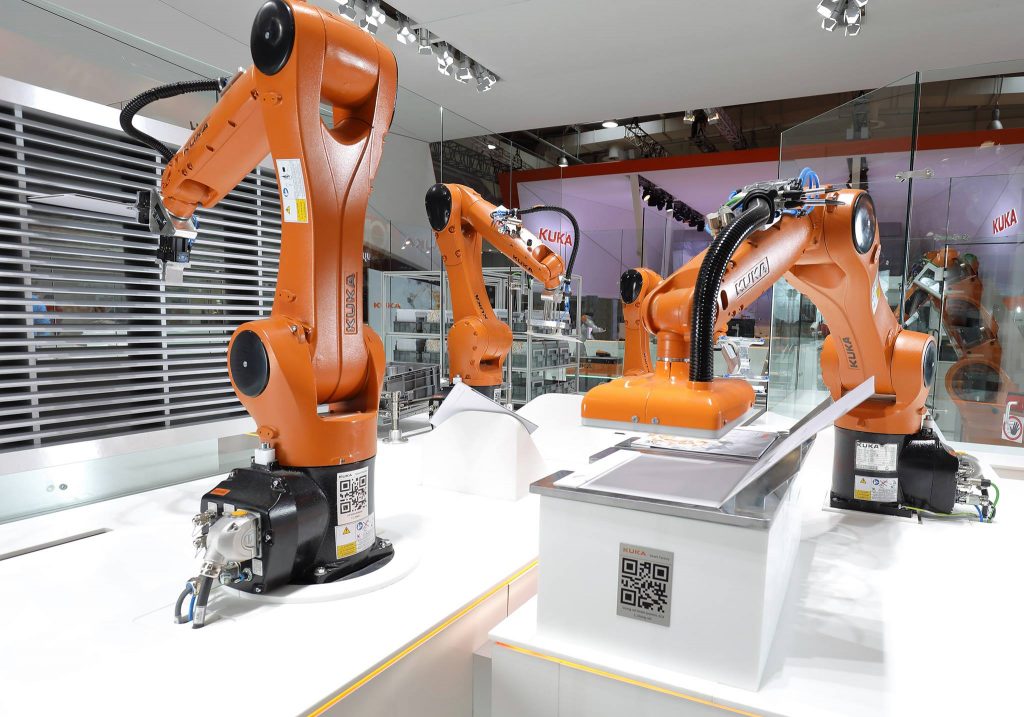The German Federal Ministry for Education and Research (BMMF) and KUKA Industries are working on large format metal 3D printing with a number of manufacturing and institutional partners. Titled ProLMD, the project focuses on the laser metal deposition (LMD) method of 3D printing in which powdered metal is fed into a melt pool created by laser beams.
Laser Metal Deposition at 32 times the speed. Clip via FraunhoferILT
Robotic arm integration and Fraunhofer ILT
KUKA robotic arms have found a number of uses across critical manufacturing industries as they are reconfigurable for a number of applications, including part inspection using mounted 3D scanners, and assembly. This versatility makes the arms ideal for use in Smart Factory concepts such as Stratasys’ Robotic Composite model, and Concept Laser’s ‘AM factory of tomorrow’.

Working closely with the Fraunhofer Institute for Laser Technology (Fraunhofer ILT), KUKA Industries have developed solutions for laser-based welding, cutting and cladding using the robotic arms. Within this research KUKA and Fraunhofer ILT developed procedures transferable to the additive manufacturing process. Günter Neumann, Head of the Business Unit Laser Process Solutions at KUKA Industries, explains,
A wide range of unique special optics, wire and powder feed systems, laser-based process developments and the certified KUKA Industries Laserspy, which is used for monitoring the safety of high-performance laser safety enclosures, were developed in this period.
Limitless 3D printed metal
Other partners for ProLMD include combustion engine manufacturer MTU, data management solutions provider BCT, diode laser manufacturer Laserline, Airbus, MBraun and Daimler.
The goal is to create a robotic system capable of 3D printing various materials onto complex surfaces, at a rate of up to 1-2kg per hour. According to Christian Goldstein, Director of Process Solutions at KUKA Industries, “There are virtually no limits to this process in terms of component size and geometry.”
For more of the latest news relating to additive manufacturing and the smart factory of the future sign up to the 3D Printing Industry newsletter, follow us on Twitter and like us on Facebook.
Don’t forget to vote in the first annual 3D Printing Industry Awards.
Limited tickets for the 3D Printing Industry Awards are also now available here.
Featured image: KUKA robotic arms at work in an automotive factory. Photo via KUKA.com


